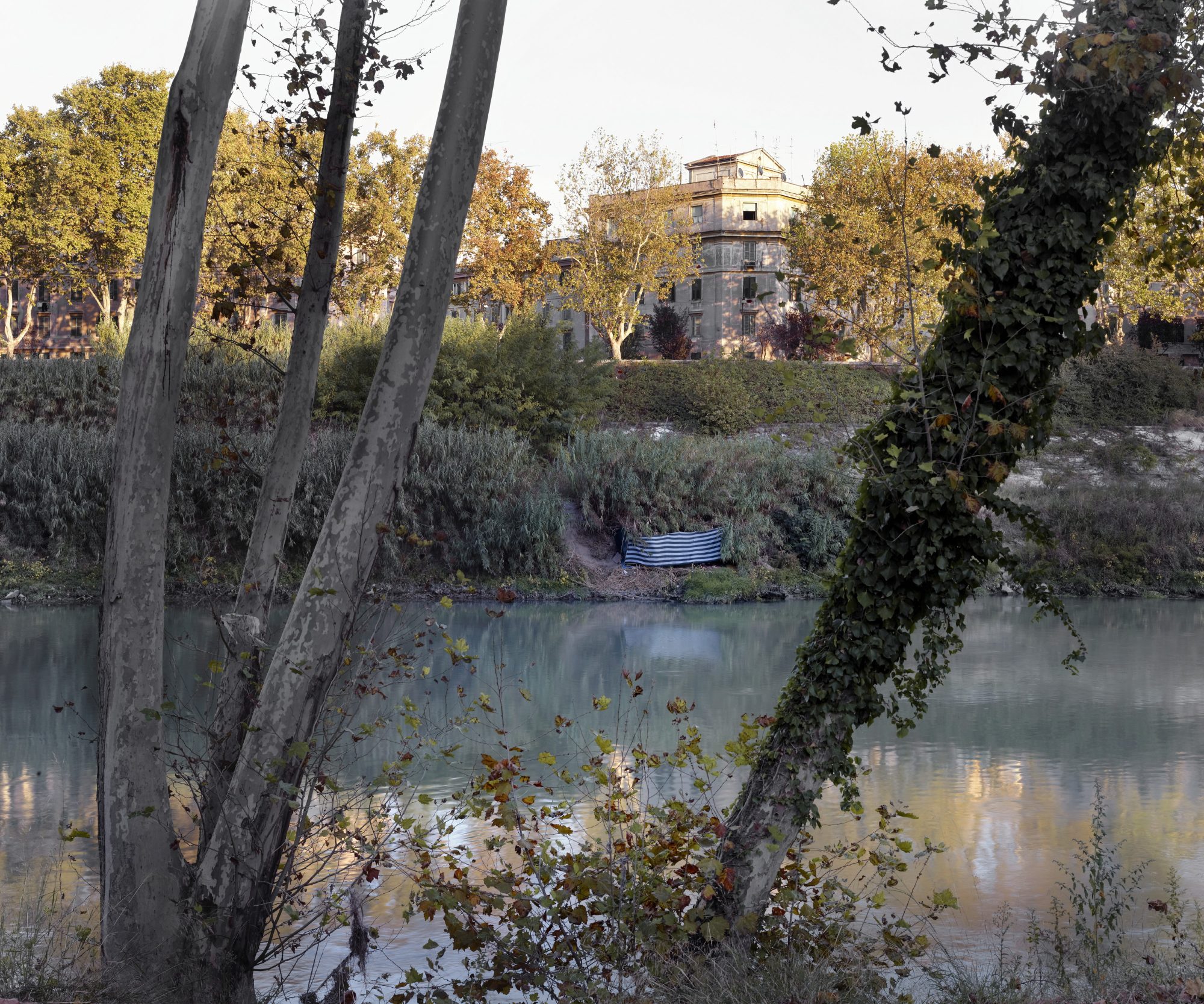Un posto dove stare
È difficile definire le persone che vivono per strada. I nomi che usiamo o sono offesivi (barboni), o stupidamente poetici (clochard), oppure sono definizioni per contrasto: senza fissa dimora, senzatetto. Un’identità a partire da un deficit della loro condizione di vita, come fosse una mancanza esistenziale.
A Roma sono circa ventimila, secondo le ultime statistiche dell’Istat, le persone che vivono per strada. Cosa sappiamo di loro? Già la questione del nome mostra quale sia la natura del nostro sguardo: disprezzo, paura, ghettizzazione, cordoglio, indifferenza.
Il non avere una casa – una casa come presumiamo dovrebbe essere una casa – ha come effetto immediato: invisibilizzazione, anonimizzazione, disumanizzazione. E questo non accade soltanto dal punto di vista della rappresentazione, ma anche del più semplice aspetto normativo: essere senza una residenza in Italia porta automaticamente a essere privati dei diritti elementari, come la possibilità di lavorare con un contratto, aprire un conto in banca, avere un medico di base.
Ma cos’è che definisce una casa? Un codice per le utenze, una posizione al catasto? Una casa non è semplicemente un posto dove stare, dove dormire, svegliarsi, tornare a fine giornata?
Questi accampamenti considerati “abusivi” non sono ai margini di tutto, nella periferia estrema, come pensiamo, ma alle volte sono vicini, letteralmente attaccato ai quello definiremmo centro, le rovine dell’antica Roma, il fiume Tevere, le vecchie mura, i parchi storici.
Nelle città che assomigliano sempre di più a dei rendering, buoni per un turismo da consumo, i posti dove stare sono case e non anonimi giacigli: persino atti politici, prese di parola, una piccola sovversione, che fa dei bisogni e dei desideri una manifestazione contro città che rischiano di diventare, queste sì, anonimi luoghi di controllo e disciplinamento.
Ein Ort zum Sein
Es ist schwer, Menschen, die auf der Straße leben, einen Namen zu geben. Die gängigen Bezeichnungen sind entweder beleidigend (Penner) oder lächerlich poetisch (Clochard) oder markieren einen Gegensatz: ohne festen Wohnsitz, obdachlos. Eine Identität, die sich über ein Defizit definiert, es als essenzielles Manko brandmarkt.
Laut der jüngsten Erhebung des Statistikinstitutes ISTAT leben in Rom rund zwanzigtausend Menschen auf der Straße. Was wissen wir über sie? Schon das Problem ihrer Benennung offenbart das Wesen unseres Blicks: Verachtung, Angst, Gettoisierung, Mitleid, Gleichgültigkeit.
Keine Wohnung zu haben – eine Wohnung, wie sie unserer Auffassung entspricht –, hat unmittelbare Auswirkungen: Unsichtbarmachung, Anonymisierung, Entmenschlichung. Das betrifft nicht nur unsere Wahrnehmung, sondern auch die einfachsten Spielregeln: Hat man in Italien keinen Meldesitz, ist man automatisch der Grundrechte beraubt, einen Arbeitsvertrag zu unterschreiben, ein Bankkonto zu eröffnen, einen Hausarzt zu haben.
Was aber definiert eine Wohnung? Eine Meldeadresse, ein Grundbucheintrag? Ist eine Wohnung nicht einfach ein Ort, an dem man bleiben, schlafen, aufwachen und an den man am Ende des Tages zurückkehren kann?
Diese als „wilde Lager“ bezeichneten Camps sind nicht irgendwo am Rand, in der hintersten Peripherie, sondern oft ganz nah, buchstäblich im Herzen dessen, was wir Zentrum nennen: Die Ruinen des antiken Roms, das Tiberufer, die alten Stadtmauern, die historischen Parks.
In den Städten, die immer mehr zu Renderings für den Konsumtourismus werden, sind Orte, an denen man sich niederlässt, Wohnungen und keine anonymen Nachtlager: Sie sind zudem politische Akte, Wortergreifungen, kleine Subversionen, ein Protest der Notwendigkeiten und Bedürfnisse gegen Städte, die ihrerseits tatsächlich zu kontrollierten, normgemäßen Unorten zu verkommen drohen.
Übersetzung: Verena von Koskull
A place to stay
It’s difficult to define people who live on the streets. The names we use are either offensive (barboni [tramps]), or stupidly poetic (clochards), or are definitions by contrast: without fixed abode, homeless. An identity based on a deficit in their living conditions, as though it were an existential lack.
According to the latest findings of the Italian National Institute of Statistics, in Rome there are around twenty thousand people living on the streets. What do we know about them? The question of what we call them already shows the nature of our view of them: disdain, fear, ghettoization, sorrow, indifference.
Not having a home – a home as we presume a home should be – almost has an immediate effect: invisiblization, anonymization, dehumanization. And this doesn’t happen in terms only of representation, but also of the simpler regulatory aspect: being without a residence in Italy automatically leads to being deprived of basic rights, such as the possibility of working with a contract, opening a bank account, registering with a GP.
But what is it that defines a home? A user ID number, a land registration code? Isn’t a home simply a place to stay in, to sleep in, to wake up in, to go back to at the end of the day?
These camps that are considered “abusive” or unauthorized aren’t way out there at the edge of everything, on the far outskirts, as we imagine, but at times are nearby, literally attached to what we would define as the city center, the ruins of ancient Rome, the Tiber River, the old city walls, historic parks.
In cities that growingly resemble renderings, good for consumer tourism, the places to stay in are homes, and not anonymous sleeping spots: they’re even political acts, statements, a little rebellion, making one’s needs and wishes a demonstration against cities that actually do risk becoming anonymous places of control and regulation.
Transaltion: Leah Janeczko
Share












